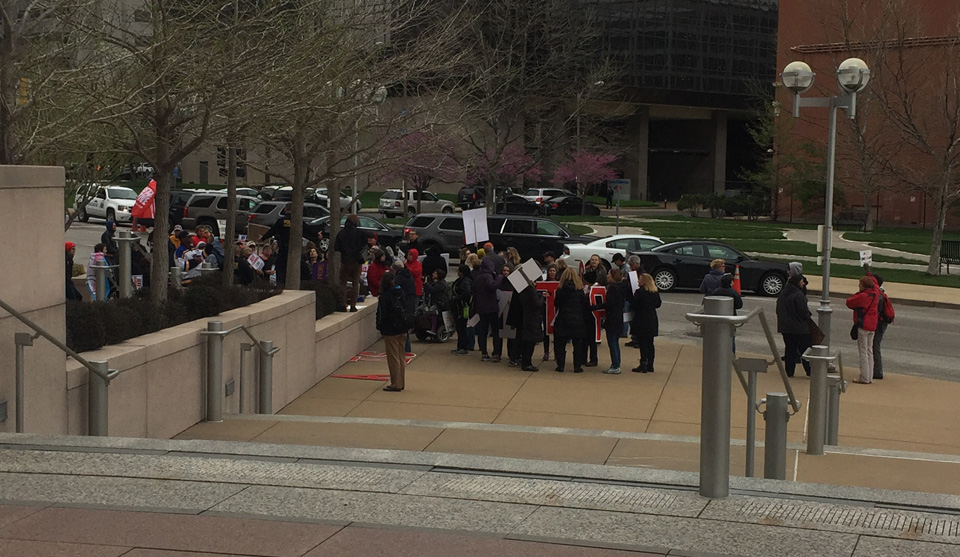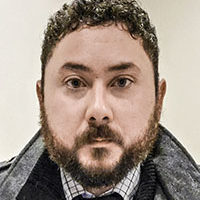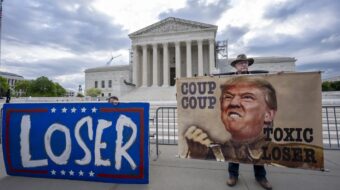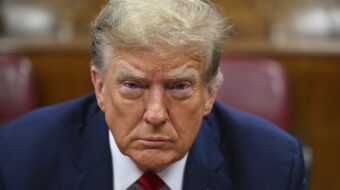
St. LOUIS — Attorney General Jeff Sessions has a checkered background in the field of law enforcement. His career has been marked by scandals, including: possibly lying under oath while being questioned about Russia’s interference in the 2016 election; being denied a federal judgeship in 1986 due to allegations of racist comments and jokes; and supporting the “illegal immigration” hoax, blaming losses in the US job market on undocumented immigrants.
None of it stopped his confirmation as the nation’s top law enforcement official.
A message of fear
On Friday, March 31, 2017, Sessions brought a message of “law and order” to Missouri’s top law enforcement officials. In his speech, Sessions pledged to continue enforcing the law, remove dangerous criminals, fight the drug war with renewed vigor, and support law enforcement officers.
But Sessions’ speech was also aimed at another audience. While “law and order” may sound comforting to some, for many immigrants, Muslims and African-Americans the Trump administration’s go-to phrase means one thing: Fear.
About 45 protestors gathered outside the Thomas F. Eagleton Federal Courthouse at 9 a.m., undeterred by the morning’s grey rain clouds and chilling wind, holding signs that read, “Black Lives Matter,” “Deport Sessions,” and chanting: “Immigrants yes! Sessions no!”
Police numbered around 75 but stayed close to the courthouse doors, paying little attention to the peaceful protest in front of them.
Inside, security was tight as the who’s who of local law enforcement made their way to one of the courthouse’s jury assembly rooms to wait for Sessions’ 10 a.m. speech.
The mood in the assembly room was lighthearted and at times filled with giddy laughter, as police officers greeted and chatted with colleagues from other departments.
The mood inside contrasted starkly with the anger and fear visible on the faces of protestors outside.
Sessions’ assertions not supported by data
Carrie Costantin, Acting U.S. Attorney for the Eastern District of Missouri, called the room to order and introduced Attorney General Sessions.
Taking the podium and speaking in his southern drawl, Sessions began by thanking all those present, recognizing former colleagues from his days as a U.S. attorney, then jumped right into telling his audience why they, too, should be afraid.
“We are all disturbed to learn that violent crime is on the rise in American cities. We are even more discouraged to learn that this is happening amid an unprecedented epidemic of heroin and opioid abuse. In some places, like here in St. Louis, these two crises are closely connected,” he said.
But there’s one problem with the rising trend in violent crime on which Sessions based his speech: it doesn’t exist. In fact, violent crime in the US dropped by 50% over the last 25 years, according to a Pew research study. Sessions was likely referring to an uptick in the rate of violent crime in about four cities that took place from 2014 to 2015; but crime experts say this hardly rises to the level of a national crisis. New York Times reporter Timothy Williams wrote in September that the “decline in homicides has been so significant in the last quarter century that sudden increases in the number of killings in just a few cities can skew the entire national picture, even as the country has one of its safest periods on record.”
Again, however, Sessions’ words added to the steady drumbeat of fear that conservatives have been sounding since early in the Trump campaign. “My fear is that this surge in violent crime in St. Louis, and throughout America, is not a ‘blip,’ but the start of a dangerous new trend,” he said.
Fifteen minutes into his speech, Sessions referenced President Trump’s recent executive orders, directing the federal government to reduce crime and restore public safety, and the Department of Justice’s recent actions to fulfill the President’s “law and order” directions. These steps include: formation of a Department of Justice Task Force on crime reduction and public safety; a memo to all federal prosecutors to work with state and local law enforcement partners to target the most violent offenders in their districts; and finally, to combat America’s heroin and opioid crises and dismantle transnational drug cartels.
Focusing the rest of his speech on the heroin crisis, Sessions recounted the caught-in-the-crossfire shooting of St. Louis resident Clara Walker, grandmother of eight; and a recent story in the St. Louis Post-Dispatch featuring a young woman, Ashley, who lost custody of her children because of her heroin addiction.
Again, Sessions said, repeating his note of fear, such problems can only be solved by so-called “law and order.”
“We can’t wish these problems away, or hope that things will get better on their own. Instead, we must act to ensure justice and safety for all Americans,” said Sessions.
“We must enforce our laws and remove dangerous criminals from the street. We must fight the scourge of drug abuse. And we must support the brave men and women of law enforcement, as they work day and night to protect us.”
Sessions ended his speech without taking questions from the press pool, and continued his meeting with law enforcement officials privately.
Protests continue
Outside, protestors continued their chants, while the mood between protestors and police had grown tense.
According to a protest organizer, one person had been arrested for sitting on the courthouse steps and crossing his arms when asked by police to step off federal property. Police told reporters and activists the individual would be released after being “talked to” and issued a warning.












Comments